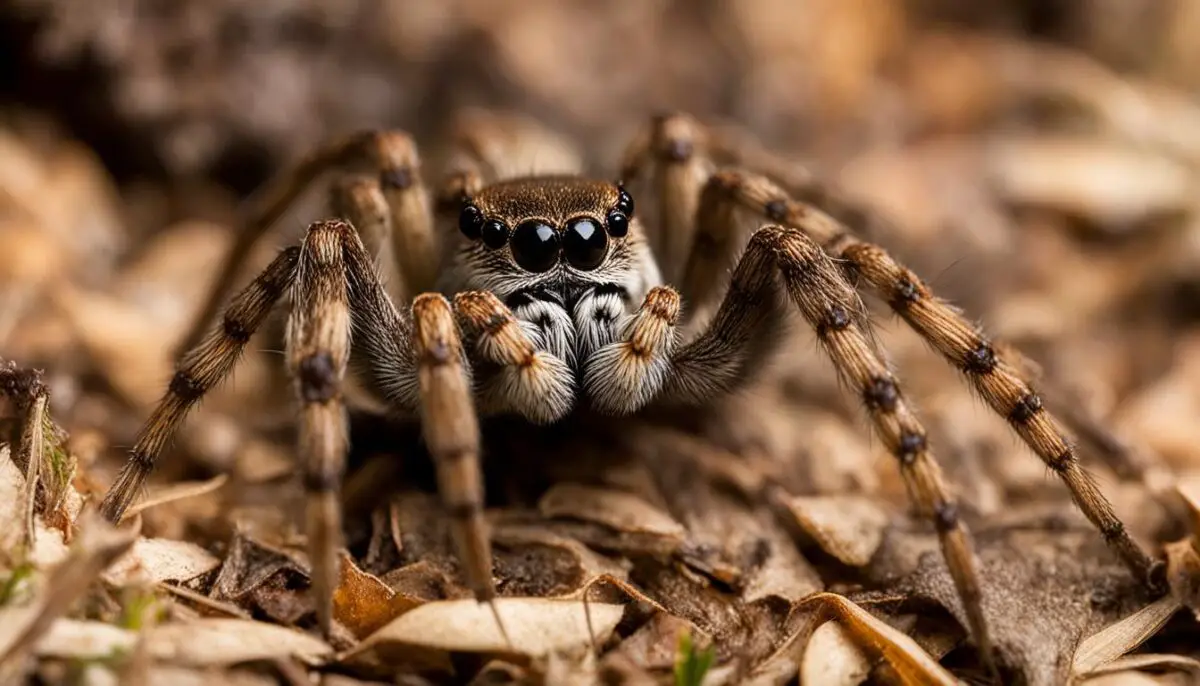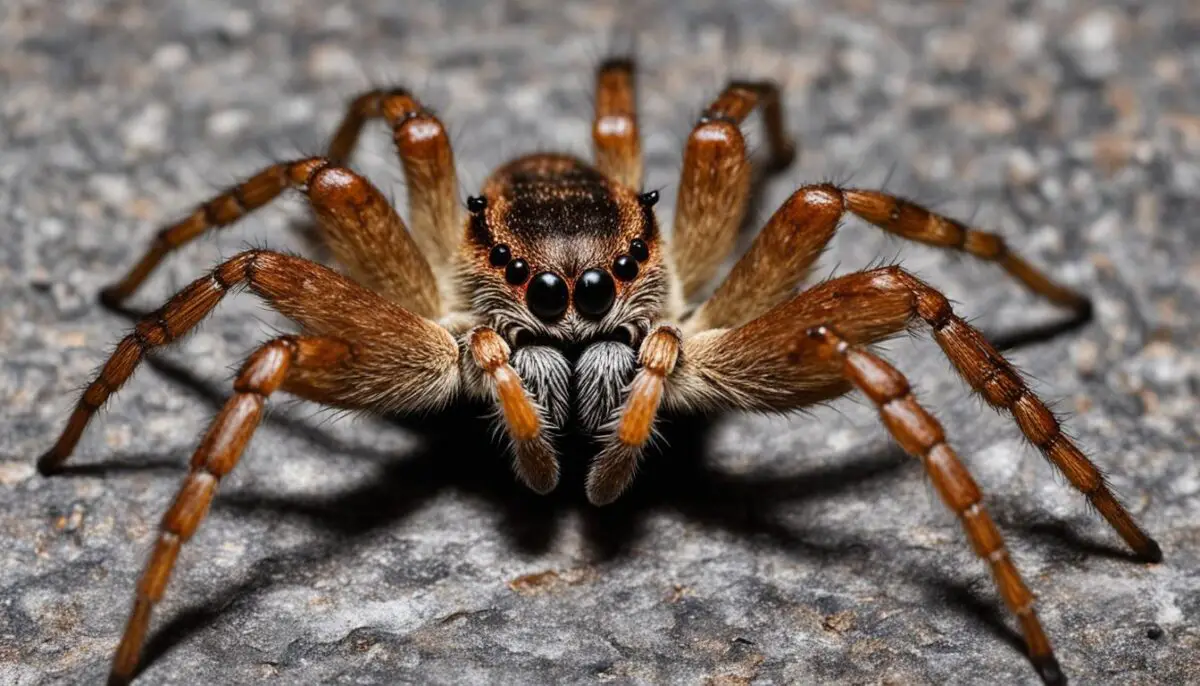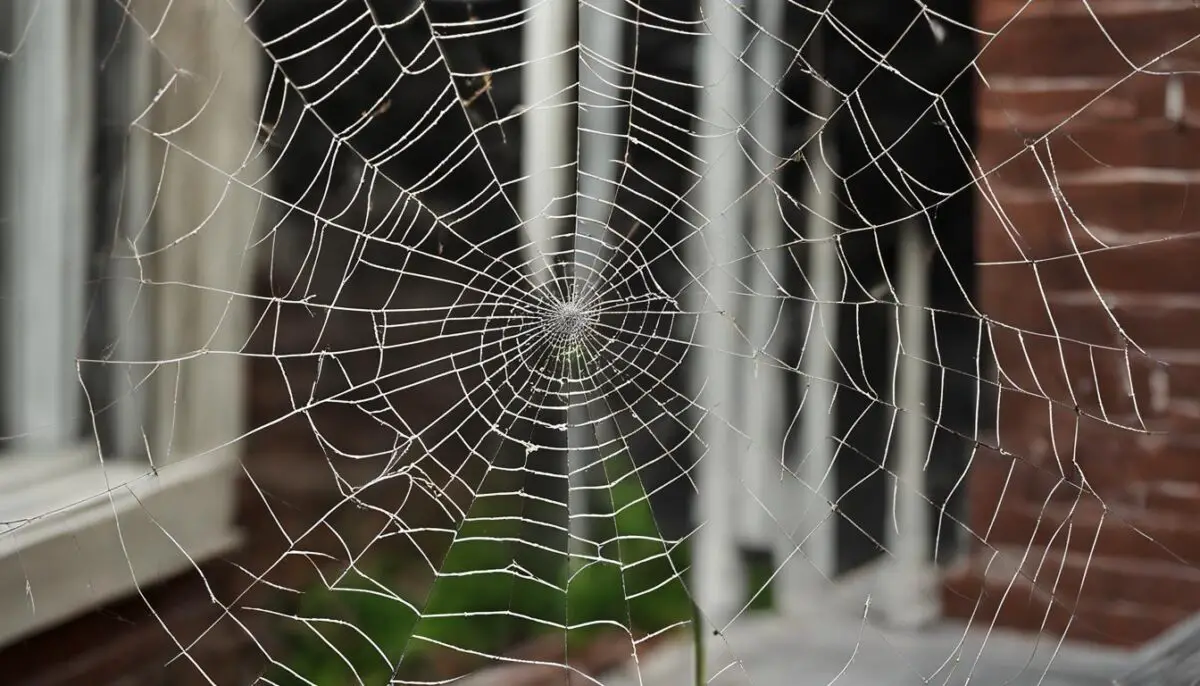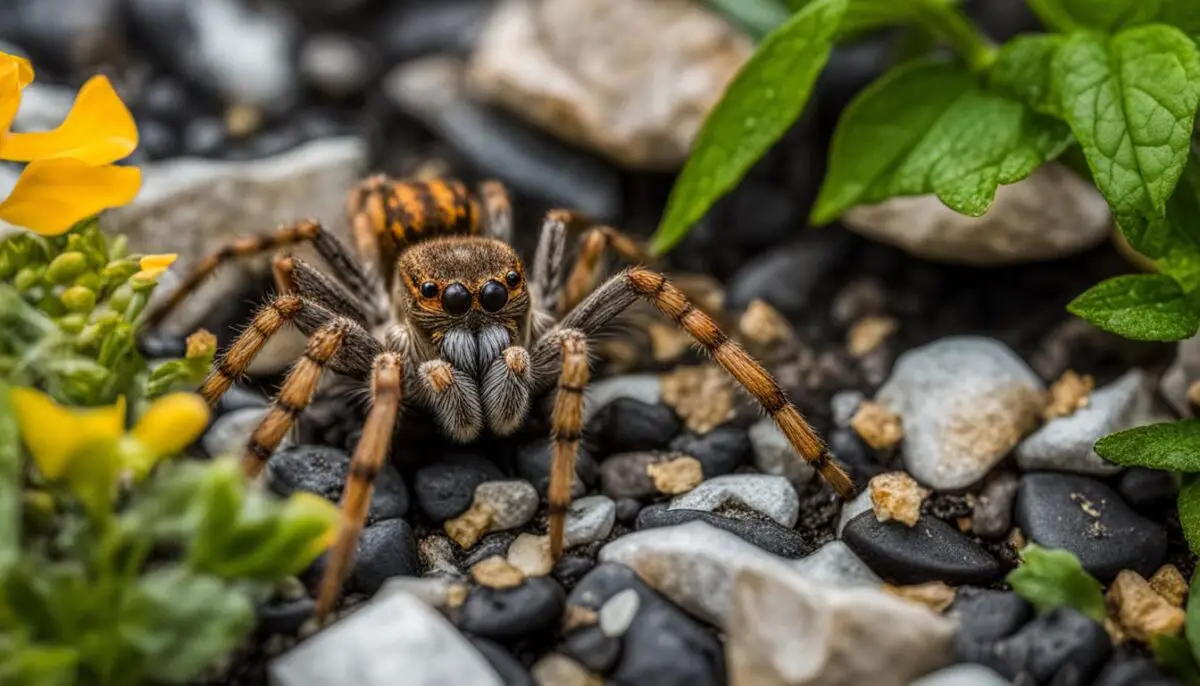Are you tired of finding wolf spiders in your home? Wondering how to keep them away and prevent them from entering your home? Look no further! In this article, we will provide you with expert tips for keeping wolf spiders out of your house.
Before we dive into the strategies, it’s important to understand the behavior, traits, and habitat of wolf spiders. By knowing what attracts them and the risks they pose, you’ll be motivated to take action and create a spider-free environment.
Preventing wolf spiders from entering your home involves a combination of proactive measures and natural repellents. From sealing off entry points to utilizing deterrents like peppermint oil, we’ll guide you through step-by-step methods to effectively keep wolf spiders at bay.
Don’t let wolf spiders disrupt your peace of mind. Follow our tips and enjoy a spider-free home!
Key Takeaways:
- Understanding the behavior, traits, and habitat of wolf spiders aids in preventing their entry.
- Wolf spider bites can cause discomfort, especially for smaller pets.
- The presence of wolf spiders can be aesthetically unsettling and create emotional stress.
- Identify and seal off entry points to prevent wolf spiders from entering.
- Utilize natural repellents like peppermint oil to deter wolf spiders.
Understanding Wolf Spiders: Behavior, Traits, and Habitat
When it comes to spiders, wolf spiders stand out with their unique characteristics and behaviors. These arachnids have distinct traits that help them survive in various habitats both indoors and outdoors.
One of the notable characteristics of wolf spiders is their larger size compared to other spiders. They can grow up to an inch in length, making them easily recognizable. Their active hunting behavior sets them apart as well. Unlike web-building spiders, wolf spiders actively chase and capture their prey, showcasing their impressive agility and speed.
Wolf spiders also have a distinguishing feature in their eight eyes, arranged in a specific pattern. This arrangement allows them to have excellent vision and accuracy in their hunting techniques. With their keen eyesight, they are skilled stalkers and can accurately pounce on their prey.
These spiders can be found in a variety of habitats, making them adaptable creatures. While they commonly reside in grassy areas, such as fields or forests, they can also be found in homes, garages, and basements. Wolf spiders are nocturnal hunters, which means they are most active during the night. Their preferred habitats offer plenty of opportunities for hunting and shelter.
Furthermore, wolf spiders exhibit unique maternal instincts. Female wolf spiders carry their eggs with them in a sac attached to their abdomen. Once the eggs hatch, the mother carries the spiderlings on her back until they are ready to venture out on their own. This behavior indicates the strong bond and care wolf spiders have for their young.
Understanding these traits and behaviors of wolf spiders can help homeowners create a less inviting environment for these arachnids. By knowing their habits, preferred habitats, and hunting techniques, you can take appropriate measures to keep them away from your home.
Now that we have explored the characteristics and behaviors of wolf spiders, let’s delve into the risks and inconveniences they bring in the next section.

Why You Don’t Want Wolf Spiders In The House: Risks and Inconveniences
While wolf spiders are generally not life-threatening to humans, their bites can cause discomfort and swelling. However, smaller pets may be more susceptible to the venom and experience more severe symptoms.
The aesthetic concerns of having wolf spiders in your home can be quite unsettling. Their large size and hairy appearance can invoke fear and unease in many individuals. It’s not uncommon for people to have a natural aversion to spiders, and the presence of wolf spiders can exacerbate these feelings.
Furthermore, frequent sightings of wolf spiders can take an emotional toll on individuals. The fear and anxiety associated with encountering these creatures on a regular basis can be overwhelming. It may lead to sleep disturbances, heightened stress levels, and an overall decrease in well-being.
“Having wolf spiders in my house made me anxious all the time. I would constantly be on edge, worrying about where they might show up next. It became emotionally draining and affected my ability to relax in my own home.” – Sarah, homeowner
Addressing these risks and inconveniences is crucial for maintaining a comfortable living environment. By implementing effective wolf spider prevention methods and taking steps to eliminate their presence, you can alleviate the physical discomfort, aesthetic concerns, and emotional distress associated with frequent spider sightings.
Risks and Inconveniences of Wolf Spider Infestation
| Risks of Wolf Spider Bites | Aesthetic Concerns | Emotional Toll of Frequent Spider Sightings |
|---|---|---|
| Discomfort and swelling | Unsettling appearance | Anxiety and stress |
| Pets more susceptible to venom | Fear and unease | Sleep disturbances |
By understanding the risks associated with wolf spiders and taking proactive measures to prevent their presence, you can create a harmonious living space free from the inconveniences of spider encounters.

Wolf Spider Prevention: Steps To Keep Them Out
Preventing wolf spiders from entering your home involves a combination of identifying potential entry points, utilizing natural repellents, and making specific home modifications. By following these steps, you can effectively keep wolf spiders at bay and create a spider-free environment.
Identifying Entry Points
One of the first steps in preventing wolf spiders from entering your home is identifying their potential entry points. Wolf spiders can squeeze through small gaps and cracks, so it’s essential to inspect your home and seal off any openings. Pay close attention to the following areas:
- Windows and doors: Check for gaps around windows and door frames and ensure they are properly sealed.
- Vents and utility lines: Inspect and seal any gaps or cracks around vents and utility lines that enter your home.
By addressing these entry points, you can significantly reduce the chances of wolf spiders finding their way inside.
Natural Repellents
In addition to sealing off entry points, using natural repellents can further deter wolf spiders from entering your home. Consider implementing the following natural remedies:
- Peppermint oil: Wolf spiders dislike the smell of peppermint oil. Mix a few drops with water in a spray bottle and apply it around potential entry points and other areas where you have spotted spider activity.
- Citrus peels: The strong scent of citrus peels can repel wolf spiders. Place orange or lemon peels near windows, doors, and other areas prone to spider entry.
- Vinegar: Spray a vinegar solution around your home’s perimeter to create an odor that wolf spiders find unpleasant.
These natural repellents are safe for humans and pets and can be effective in keeping wolf spiders away from your home.
Home Modifications
Making specific modifications to your home can discourage wolf spiders from taking up residence. Consider the following steps:
- Proper lighting: Wolf spiders are attracted to darkness, so ensure your home has adequate lighting both inside and outside. Well-lit areas are less appealing to these spiders.
- Decluttering: Remove unnecessary clutter from your home, as it provides hiding places for wolf spiders. Keep your living spaces clean and tidy to reduce their potential habitats.
- Yard maintenance: Trim vegetation near your home’s foundation and keep your yard well-maintained. This reduces the likelihood of wolf spiders finding shelter close to your home.
By implementing these home modifications, you can create an environment that is less inviting to wolf spiders, decreasing the chances of an infestation.
| Identifying Entry Points | Natural Repellents | Home Modifications |
|---|---|---|
 |
 |
Conclusion
Keeping wolf spiders away from your home and maintaining a spider-free environment requires a proactive approach. By understanding their behavior, traits, and habitat, you can implement effective methods to deter them.
Start by identifying and sealing off any potential entry points, such as gaps or cracks around windows, doors, and vents. Regular home maintenance, including decluttering and yard upkeep, can also help create an unappealing environment for these arachnids.
Utilizing natural repellents, such as peppermint oil or citrus peels, can further discourage wolf spiders from venturing into your space. Regularly applying these repellents in key areas of your home can be an effective deterrent.
With consistent effort and vigilance, you can enjoy a spider-free home. By following these strategies and incorporating them into your routine, you can create an environment that is less attractive to wolf spiders, ultimately maintaining a peaceful living space.
FAQ
How do I keep wolf spiders away from my home?
To keep wolf spiders away from your home, you can implement preventative measures such as sealing off entry points, like windows, doors, vents, and utility lines. Using natural repellents like peppermint oil, citrus peels, or vinegar can also deter wolf spiders. Making home modifications like proper lighting, decluttering, and yard maintenance can further discourage their presence.
What are the characteristics of wolf spiders?
Wolf spiders are distinct from other spiders due to their larger size and active hunting behavior. They have eight eyes arranged in a unique pattern, providing excellent vision for their hunting techniques. They can be found in various habitats, both indoors and outdoors, and exhibit behaviors like night hunting and strong maternal instincts.
Are wolf spiders dangerous to humans?
While wolf spiders are generally not life-threatening to humans, their bites can cause discomfort and swelling. However, smaller pets may be more susceptible to their venom and experience more severe symptoms. Additionally, the presence of wolf spiders can be aesthetically unsettling and create an emotional toll, causing stress and anxiety from frequent sightings.
How can I prevent wolf spiders from entering my home?
Preventing wolf spiders from entering your home involves identifying their entry points and sealing off any gaps or cracks. Properly sealing windows, doors, vents, and utility lines is important. Using natural repellents like peppermint oil, citrus peels, or vinegar can also deter wolf spiders. Making home modifications like proper lighting, decluttering, and yard maintenance can further discourage their presence.
How can I make my home less attractive to wolf spiders?
To make your home less attractive to wolf spiders, you can implement various strategies. This includes sealing entry points, using natural repellents, making home modifications, and ensuring good lighting. Cleaning up clutter, maintaining a tidy yard, and removing potential food sources can also help make your home less appealing to wolf spiders.

